- Home
- Helen Dunmore
A Spell of Winter Page 25
A Spell of Winter Read online
Page 25
‘I’m off,’ he said, ‘off tomorrow.’
‘Where?’
‘Slinsden first, to the barracks. Then for training.’
‘Just you? Not Michael and Theodore?’
He shook his head slowly, amused. ‘No, not them. They won’t go till they get a shove.’ He laughed, because that was never going to happen. ‘They think I’ve been a fool to myself,’ he went on, and reached out to pick a spray of rosehips. The hips were slim and a perfect dark red, slightly overripe. Their flesh would be mushy, and the seeds dark yellow. He held them and looked at them abstractedly. ‘Pretty,’ he said. ‘Maybe they’re right. I wonder if they have such things in France.’
I thought of mimosa and my mother, and the navy swell of a warm sea in winter. She was safe where she was. And now here was George going to France before me.
‘I don’t know,’ I said. ‘I expect it’s like here.’
‘Maybe. You know how you think there’s nowhere like your own place. But I’m sure they think the same.’
Our words pattered like dry berries in the quiet dust of the lane.
‘I can’t remember such an autumn,’ I said. ‘Usually it’s a sea of mud here by now.’
‘Yes, there’s a seam of clay across here. Comes up every year and you can squeeze water out of it like wringing a cloth. Mucky stuff.’
There was no mud now. My boots were coated with silky dust, and the hem of my skirt was white too, white as harvest. The hollow of the lane held fragile warmth. If we stirred it would be gone.
‘Better be going,’ said George. ‘Ma’s made a steak pudding, seeing it’s my last day. If I’m not back in time the others’ll eat it for me.’ He grinned. His eyes were the palest blue, like starch-water. Neither of us moved. The lane tunnelled away beyond us, turning corners he’d soon turn too.
‘So many berries everywhere,’ I said. ‘It’s going to be a hard winter.’
‘Not where I’m going. France – it’s hot there.’
‘Are you glad to go?’ I asked, but it was the wrong question.
He shrugged. ‘Find out when I get there, shan’t I?’
‘Yes, of course.’
‘Best be going, then.’
‘Enjoy the steak pudding,’ I said, and that was the last time I saw him.
Theodore would never have volunteered, nor would Michael. There was something set in them against it, though they never said what it was. ‘I’m not such a fool,’ said Theodore once, before George died, when his letters from camp were talked of round the village like an achievement everybody shared. But he said it as if it were code for something he couldn’t express. He had that fine feeling for words which would make him use none rather than the wrong ones. He would tell me of things I ought to know, a broken field drain or a blocked ditch. He talked to me as he used to talk to Rob, as if I weren’t a woman to him any more. I liked it.
The second year of the war, after George had gone, he taught me to plough. ‘Go gentle,’ he’d say. ‘No need to rush it. This field’ll be here tomorrow, and the day after.’ When Theodore ploughed, a long, sure seam of earth opened behind him, ripping and crumbling like a wave as it breaks into foam. The fresh earth showed colours which dulled almost immediately, as the colour dulls on a fish when it’s caught and landed. It was chocolate and bramble and iron-blue, then the wind dried it and it was plain brown earth. Seagulls followed us, swooping low so I saw their pale green eyes looking emptily into mine as they sailed a tight turn above the plough. It was slower when I ploughed. The blade jagged at the soil and the mare dragged heavily, baffled. I looked back and saw the ugly line of the furrow.
‘Let the mare go to her work,’ said Theodore. ‘She knows how, only you won’t let her.’
I tried again. It was on the second day that I caught the rhythm. The mare relaxed, trusting me, and the plough ran deep and straight.
‘Now you’ve got it,’ said Theodore, and at once I lost it as the plough juddered. But I got it back again. I was ploughing, turning the earth so it could ripen in the frost. But the mare was old. We would get one more season of work out of her at most.
‘If he hadn’t of gone to Canada he’d be driving the plough. Think of that now. You’ll not have had many letters with the war,’ said Theodore.
‘No, not many.’
‘He’ll have got a place of his own by now. Land’s cheap there.’ Theodore probed by statements, not questions.
‘Yes,’ I said, ‘there’s plenty of land out there.’ I didn’t tell him that Rob had none, as far as I knew.
‘It’ll have some kind of foreign name, the place he’s living at.’
‘It’s called Rivière-du-Loup. That’s where he was when he last wrote. It means Wolf River.’
‘That’d be the Canadian language.’
‘It’s French. He’s in the part where they speak French.’
‘They got wolves there then, I suppose. He’ll like that. Plenty of shooting.’
‘Do they shoot wolves? I don’t know.’
‘Couldn’t have wolves running around the town.’
‘No.’ Wolves running, heads down, on the icy tracks of a sledge. He wrote that the river froze solid in winter, first a mush of ice, then big slabs, then an iron road you could drive across with a sledge and horses. He said nothing about Kate. He hoped to go to Quebec and get a job there for a while before going on westward, but he was learning French first. The kind of French he’d studied at school was worse than useless. He was sharing a house with a trapper who came into town for the winter to drink away his profits. The noise went on all night sometimes. There was only one page of writing. I held the letter in my hand and thought of how far it had come, but even its long journey couldn’t make it anything but dead in my hand. Grandfather read it and then it was left lying open on the sideboard. When I next looked I couldn’t find it. I began to wonder if I had made it up: the horses galloping on the frozen river, the trapper insensible with alcohol, my brother learning French in a room from which he could hear wolves howling. I took my atlas and worked west through the place names. Glace Bay, Halifax, Quebec, Trois-Rivières, Montreal, Sault Ste-Marie, Thunder Bay, and then the map broke up into a thousand lakes without names. I wondered how far Rob would go. Would he get beyond the towns to where there wasn’t any language spoken at all?
‘Hard when it’s your own flesh and blood, in another world as it might be,’ said Theodore. He tossed aside the crust of his bread-and-cheese and a seagull plunged down the air, feet first, and stabbed at it. The bird looked big and evil, its feathers oily, its beak a razor. Like this it would come down on the head of a drowning man at sea. I knew that Theodore had forgotten Rob now. He was thinking of George, ploughed into earth none of the Semples had ever touched, earth whose colour and texture was unfamiliar.
Do they shoot wolves? I don’t know.
But they shoot men every day.
‘Best be getting on then,’ said Theodore.
The Semples’ chapel minister was said to be against the war, but no one walked those miles over the fields to find out if it were true. Then the tribunals started, with Livvy’s father one of the local dignitaries on the board. Livvy had no brothers, so it was easy for him to write those words that meant a man went or stayed. Livvy rolled bandages two days a week; she had married a Staff Officer. She smiled when we met, but she was a young matron now, not a mermaid.
‘They can’t take all three of ’em from me,’ said Mrs Semple, who had no patriotism in her. Her boys were what she cared about. The village had always thought she cared for them more than was decent. ‘She’d step on a dead man’s face to get to one of her boys.’
Grandfather showed me a correspondence in The Times. A woman had written in to say that she had sent every one of her six sons to the war.
In these times a mother’s heart, wrung as it is with sorrow, beats high with pride and the knowledge that among all those fine young men her own flesh and blood is marching. Mothers of England who have given
and given and given again, our sacrifice will never be forgotten.
All the next week people wrote in to say they had sent more. Six was nothing; here were eight, or ten. Impossibly the figures piled up like the huge weight of cabbages at a village show. The crowning letter came from a mother who had eighteen close male relations at the front, and the correspondence closed.
‘There you are,’ said Grandfather, folding up the paper. ‘We might show this to Annie Semple, eh? Do you think it would do her good? Well, we’ve no one to send, have we, Catherine?’
‘You’ll manage,’ said Theodore to me. ‘You’re coming on. Only for the mare’s lameness, you’d be fine. What’ll you do?’ He was really asking me what money we had. I knew how little it was and how much it had to do. We’d be lucky to buy another plough horse.
‘You’re going then,’ I said.
‘Got to,’ said Theodore. ‘Me and Michael both. Ma’s terrible, I wish you’d look in and see her when we’re gone. Pity she never had a daughter, times like this.’
‘She didn’t want a daughter. You three were all she wanted.’
It was true. She’d gloried in them from when they were babies. She loved their maleness: the creak of their boots as they came in, their hair dark with sweat at the roots, their sudden scuffling fights, their appetites.
‘Quakers don’t have to go. They can join the ambulance service,’ I said.
‘I dare say,’ said Theodore, ‘but it’ud be a bit late to be turning Quaker now.’
Rumours were coming back of what they did to conchies, how they made them run all night naked on freezing beaches near Scarborough, how they put them up for shooting practice or sent them over the top without guns. I wondered if Theodore had heard those rumours too.
‘What did the Board say?’
‘Stood us there,’ said Theodore, ‘and read out our medical reports. Michael was six foot in his stockinged feet when he was measured. ”Magnificent specimens”, that’s what they called us. We didn’t tell Ma. You’ll keep things going here, then.’
‘I’ll try.’
‘Take it slow. You don’t want to lose heart with rushing at it.’
I knew about taking it slow now. I even chewed slowly, tasting each morsel, while the surface of my mind grazed at peace. At night I was often too tired to dream. Muscle by muscle I fell into sleep like someone swallowed by deep water, and in the morning I began the day as soon as I woke and worked through it steadily, my hands on the ropes. On Sundays I crouched by the fire like a dog, watching the flames for hours, too stupid to read.
‘He’s getting old,’ said Theodore. He meant my grandfather. It was true, and though it hadn’t happened suddenly, it was suddenly final and there would never be any going back on it. He got up late and went for long shambling walks in the woods, poking at things with sticks. He was like a fire banked up for the night: if you broke the crust there was heat hidden there, but more and more often all I saw was the dulled surface of him, giving out nothing. At first I’d wanted him to notice everything I was doing. I thought he’d be glad of it. I’d come back and tell him how I’d cleared a ditch, or learned to use the double-handled saw with Theodore, but he was irritable, as if the reality I described had nothing to do with him. He could not believe in the world he found himself in, with all that huge struggle come to nothing but an old man in a leaking house, wife, daughter and grandson gone, granddaughter working as hard as any Shawl Ellen in skirts that showed her legs. I watched him disappear into the woods, his head bowed and his stick ferreting.
But he talked to me now, at night after we’d eaten, when there was one candle on the table, or only the firelight, and we sat with a bowl of nuts to crack and a glass of wine. He poured out my wine faultlessly, so that it swelled to the brim but never spilled. He poured me one glass, then another, and pressed me to take more.
‘Take another glass of wine, Catherine. You must keep up your strength.’
In the mornings my head felt light and distant, with an ache in it which soon worked off in the cold air.
‘There are only the two of us,’ he said once. ‘We must –’ and then he mumbled some words I couldn’t hear.
‘What did you say?’
He sat bolt upright, his heavy-lidded eyes shooting out their fire again as they rarely did now.
‘Only the two of us. We must –’
He stopped again. I swallowed my wine, looking away to help him.
‘CHERISH!’ he shouted. ‘One another!’ and he looked at me like a hawk about to plunge on my heart. But I knew him now.
‘Yes,’ I said, and I put out my hand and laid it over his. It was warm: that surprised me, how warm it was.
We ate our nuts. ‘Did you walk in the woods today?’ I asked.
‘I walked to Silence Farm,’ said my grandfather. ‘Why, I don’t know. A fool’s errand if ever there was one.’
The path was quite overgrown. I wondered how he had got there, thrashing down dry hemlock with his stick, forcing open the tangled field gate.
‘No one’s been that way for a long time. I saw a stoat kill a rabbit on the path in front of me as if I weren’t there. Didn’t see what it was at first – just the shape of it whipping at the creature’s throat. They’ve an instinct, you know, Catherine. They can sense the blood under the skin. Do you know, I half believed it would go for me too.’
‘How were they, at the farm?’
He picked up his knife. ‘Is there no fruit? You ought to have fruit. No, I didn’t go in. This the war, that the war. You know how they are there, half-starved for company. She’d choke you to death on cake if it’d keep you there talking another quarter of an hour. I came back through the woods.’
I’d seen him, walking slowly home, feeling ahead of him with his stick. ‘There’ll be fruit tomorrow,’ I said. ‘I gave six geranium cuttings for some dried figs.’
‘Good girl.’
I walked to Silence Farm. Oh no, I didn’t go in. I came back through the woods. He was mostly alone, as he’d always been.
I hoped that sometimes he looked up at the bare branches and saw them suddenly clothed, I hoped that he listened and heard the tender rustle of leaves, so new they were still damp and crumpled from the bud. I hoped that he felt a sudden weight in his arms and looked down where the baby stirred and looked up, noiseless with wonder, into the spreading hands of a horse-chestnut.
It was the fourth winter of the war. The mare was dead and, though I’d hired a horse for ploughing, most of the land lay fallow. I’d had to let First Field go. There were eight goats now, though, and trade in the market was good. I had repaired the fencing round the paddock, and planted a new herb garden with pennyroyal and purple sage, spearmint, rue and rosemary. The wizard planted his own herbs but he always needed more, and we could make up bunches for market. I caught myself thinking how I would show it all to Theodore when he came back. It was impossible to believe that the men they said were dead were really gone, without a corpse to kiss or a funeral where we could see them folded neatly away into the soil. It was a trick, a magic hand wiping the landscape clean of young men. They had walked over a hill and vanished, so suddenly that they might come back just as they left, walking quietly along the lanes, a little older and more deeply tanned, speaking a few words of a language we didn’t know. Before the mare died I thought I heard Theodore once, close behind me, clicking his tongue in the way she liked. She turned her head as if she heard it too.
‘It’s not now we’ll feel it,’ said Mrs Blazer. She swilled boiling water and soda round a milk-bucket, then tossed it out in a long arc on to the grass. It stood on the grass for a few moments, then was sucked away. ‘It’s when this war’s over and they don’t come home. That’ll be the breaking-point.’
‘If it’s ever over.’
‘There’s a hole in the wire there. A fox’d get through that.’
‘It’s too small.’
‘Don’t you believe it. They can stretch themselves out like water when they
want to.’
She went indoors to make tea for us. She’d made oat biscuits too, with the last dark smears of honey scraped from the comb. We were going to eat them with a bit of cheese. My mind ruminated on food as I knelt by the chicken-wire, plaiting one brittle strand into another. The wire was old and it broke easily. The work was too tricky to do with gloves on, but the wire hurt my fingers. There was blood coming up under the thin surface of my damaged skin. If I had a handkerchief, perhaps I could wind it round so the fingers were protected …
I heard boots crunch on the path. Too heavy for Grandfather. I looked up and he was standing there. My hands went out as if to push him away, as if he were the fox.
‘Hello,’ he said. He smiled, not quite looking at me. He was wearing dark clothes of a cut I didn’t know. Town clothes.
‘You’ve come back.’ I was cold from kneeling on the winter grass and I stood up slowly, rubbing little flakes of rust off my hands.
‘I didn’t write,’ he said. ‘I thought it was best not. I thought you might not see me.’
‘Where’s Kate?’ He’d taken off his hat and his hair was squashed flat. It was shorter than it had ever been and not conker-brown any more, just an ordinary brown like anybody’s hair.
‘Kate?’ he asked, his eyes blank for a second. ‘Oh, she’s not with me. I haven’t seen Kate for a long time. She married, you know. A widower. They have a son now.’
‘Married?’
‘Yes. Well, why not? She could have married ten times over in Canada. There aren’t enough women there. And he had some money.’
‘Did he?’
‘Well, not all that much, I don’t suppose. But it was a lot to Kate. I went to her wedding.’
‘You went to her wedding?’
‘Yes, why not?’
He picked little grains of frost out of the rotting fence-post. His hands were fine and soft, quite different from how they had been. My own looked rough beside them, my fingers thickened with work.

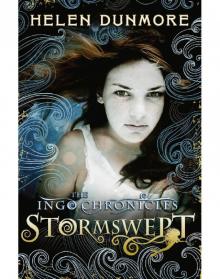 The Ingo Chronicles: Stormswept
The Ingo Chronicles: Stormswept The Deep
The Deep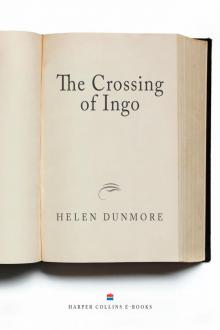 The Crossing of Ingo
The Crossing of Ingo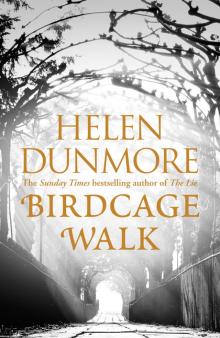 Birdcage Walk
Birdcage Walk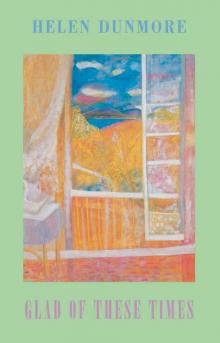 Glad of These Times
Glad of These Times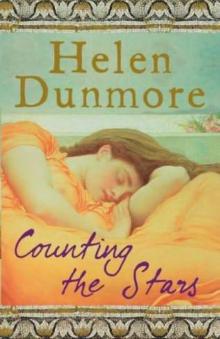 Counting the Stars
Counting the Stars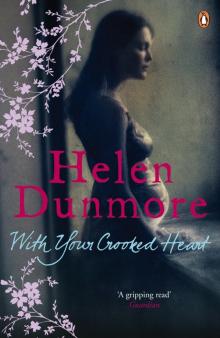 With Your Crooked Heart
With Your Crooked Heart Burning Bright
Burning Bright House of Orphans
House of Orphans Mourning Ruby
Mourning Ruby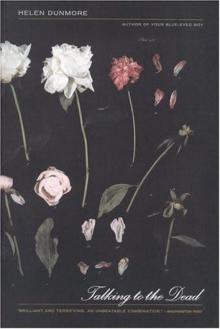 Talking to the Dead
Talking to the Dead Exposure
Exposure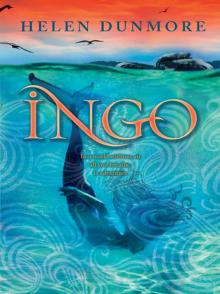 Ingo
Ingo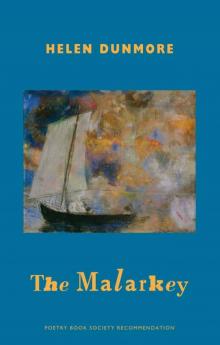 The Malarkey
The Malarkey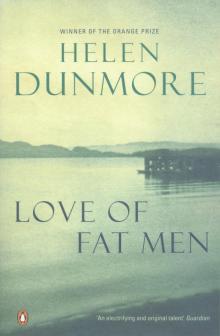 Love of Fat Men
Love of Fat Men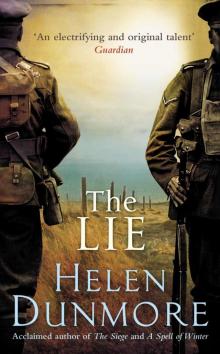 The Lie
The Lie The Siege
The Siege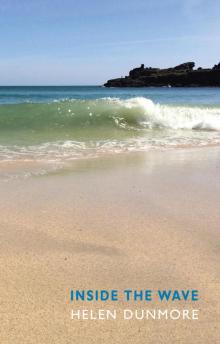 Inside the Wave
Inside the Wave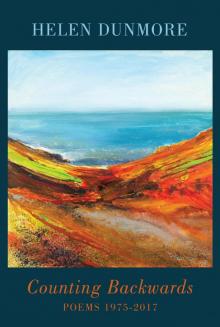 Counting Backwards
Counting Backwards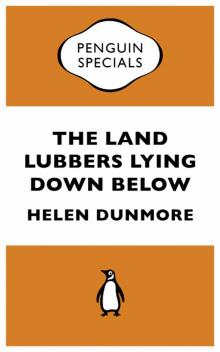 The Land Lubbers Lying Down Below (Penguin Specials)
The Land Lubbers Lying Down Below (Penguin Specials)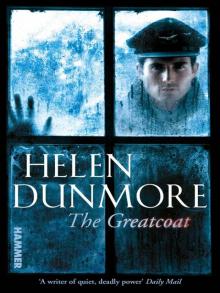 The Greatcoat
The Greatcoat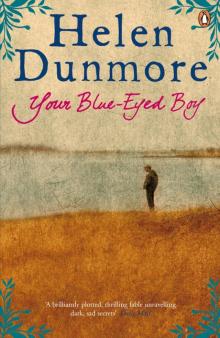 Your Blue Eyed Boy
Your Blue Eyed Boy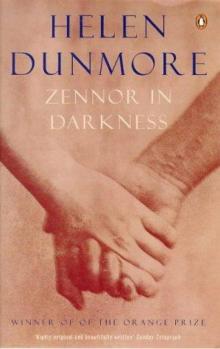 Zennor in Darkness
Zennor in Darkness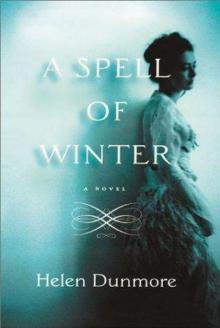 Spell of Winter
Spell of Winter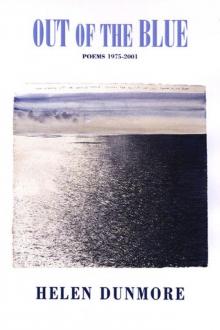 Out of the Blue: Poems 1975-2001
Out of the Blue: Poems 1975-2001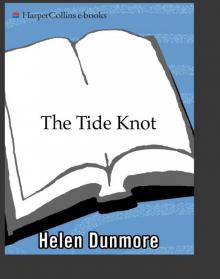 Tide Knot
Tide Knot The Betrayal
The Betrayal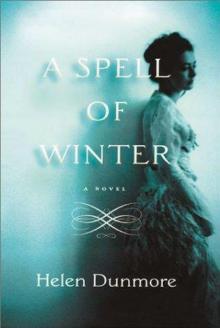 A Spell of Winter
A Spell of Winter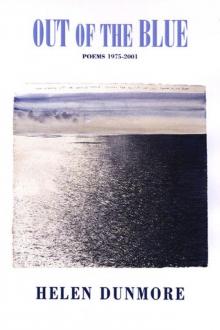 Out of the Blue
Out of the Blue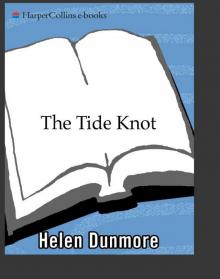 The Tide Knot
The Tide Knot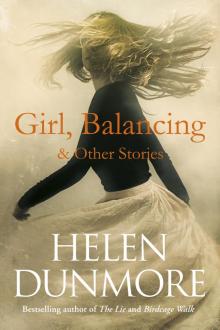 Girl, Balancing & Other Stories
Girl, Balancing & Other Stories Betrayal
Betrayal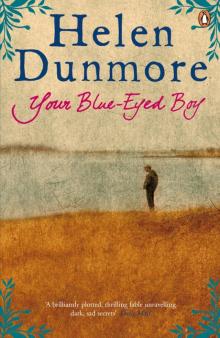 Your Blue-Eyed Boy
Your Blue-Eyed Boy